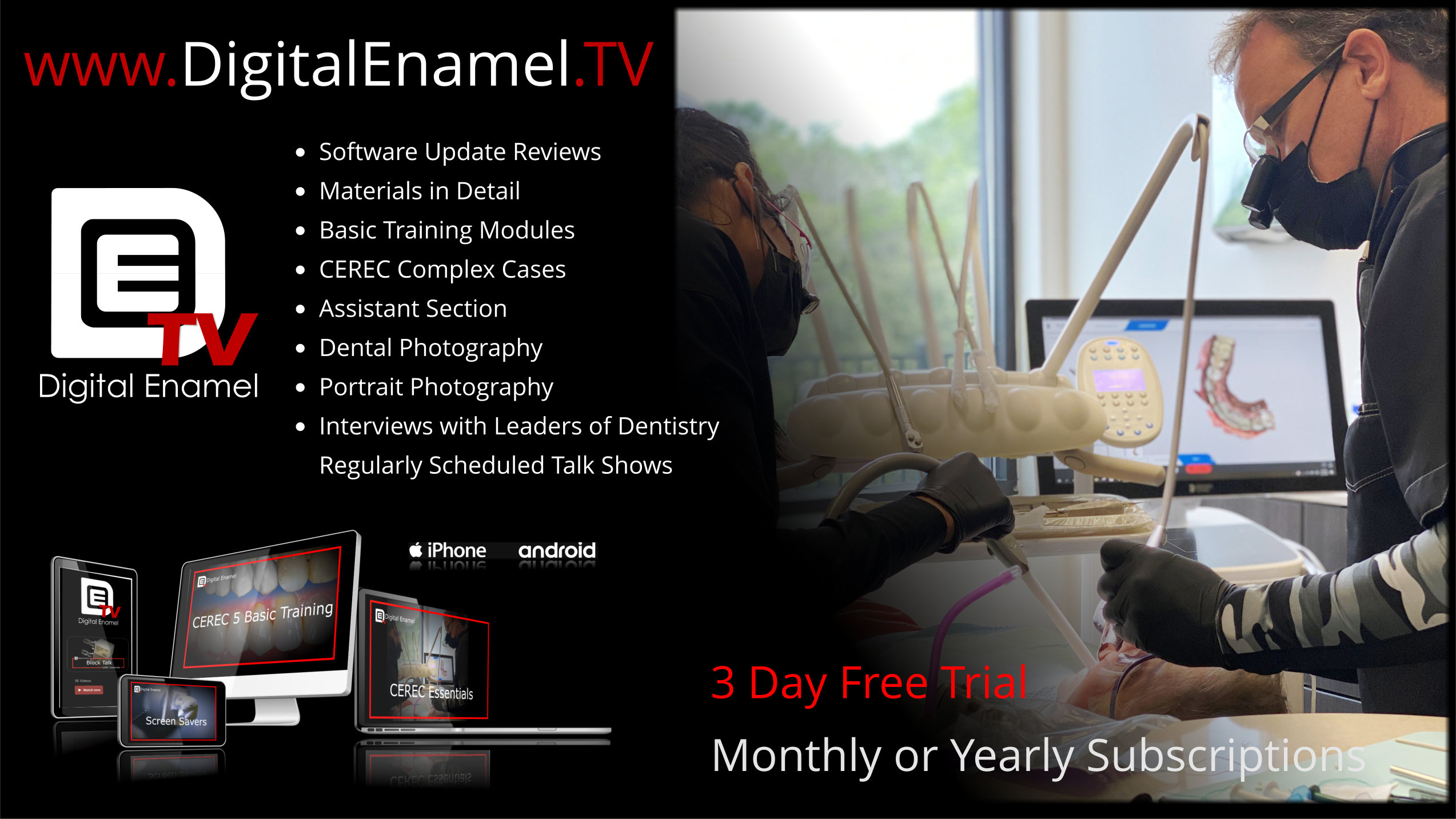“Perfectionism: Friend or Foe?” (This is Part Three of a Three Part Series on Perfectionism in Dentistry)

STEP 2: Tools to Overcome Perfectionism
Tool #1: Changing perfectionistic thinking
Changing perfectionistic thinking requires us to develop realistic thinking by placing things in perspective while looking at the overall picture. Sometimes this involves compromising, not our quality or preparedness, but our control over the outcomes.
It is fairly common that people that display perfectionistic tendencies are not only hard on other people but themselves, too. Positive and realistic thoughts and actions about oneself can help a perfectionist in his journey to address this pattern of living. Phrases like “Nobody is perfect” or “All I can do is my best” are reinforcing statements that can lead to positive actions. Remember, lowering your standards DOES NOT mean having no standards or poor expectations of our dental work. I am not advocating inferior work of being ill-prepared for a procedure. I am advocating realistic goals that are not paralyzing one to anxiety and depression. Realistic standards are goals that can actually allow us to be in a healthy environment of growth with our families, friends and work. Remember, not being “perfect” does NOT mean you are doing bad work.
Ask yourself the question, “If you decide today to place a filling on a tooth instead of a crown and months later the facial cusp fractures to the gingiva requiring a full coverage crown, does this mean that you are a bad dentist or even made a poor clinical decision to fill the tooth at the time?” Absolutely not! Assuming you made a sound clinical decision (backed by research and experience) not to crown the tooth but fill it, you can’t be responsible for unforeseen situations that occur. Remember, the mouth is an ever-changing, dynamic environment that is constantly being challenged by chewing, acids and sugars, and less than “perfect” homecare. Preparing our patients for the possibilities of the tooth needing a crown in the future, root canal therapy, extraction, etc. all create a picture of what could happen to the tooth and “prepares the way” if any of these realities happen. This is an important point to remember because this takes the total burden off of the dentist and places some of the potential future needs on to the patient.
We use terms like “co-diagnosing” with the patient when we show the patient an intraoral photograph of their tooth and tell them why they need a crown on the tooth. I would suggest that we should use co-diagnosis with the patient to show limitations to what we are doing. We can’t “guarantee” anything in the mouth but discuss questions like, “The filling may work for a while but…” or “If the cusp fractures off, we will need to do a crown at your additional expense of ________ (assuming the filling is within a few years old, etc.). The patient ultimately should make the decision (patient autonomy) on which treatment is ideal for the patient at that time. This will take the weight of trying to predict the future of what will happen to the tooth and directly addresses the issue of always trying to be in control as seen in perfectionism. Of course, we may tell the patient at the time that it is unwise because of what we clinically observe to just place a crown on the tooth when we think the tooth needs root canal therapy and a core buildup prior to seating the crown.
Perfectionists are worriers. They major on the little things in life sometimes to the point of paralysis or not being able to function. The following questions a dentist can ask himself to reduce perfectionistic tendencies are:
- If I don’t do ideal treatment what will be the results?
- What is the worst that can happen if I go with a treatment that I feel is inferior?
- If I go with less than ideal treatment, what is the worst that can happen and can I recover and restore it?
- If I do no treatment will this make the condition worse in the long term?
Of course, these questions should stimulate you to discuss your answers with the patient and invite them to share in the responsibility of what they chose.

Tool #2: Changing perfectionistic behaviors
Having a problem with perfectionism is a lot like having a “phobia” of making mistakes or being imperfect – you are terrified of making mistakes. Facing fears in a gradual and consistent manner is the most effective way to overcome phobias, and is called “exposure”. Similarly, overcoming your “phobia” of making mistakes or being imperfect involves doing just that–gradually and purposely making mistakes and coming across as imperfect while learning from your mistakes to prevent the same result in the future. This doesn’t mean you won’t continue to make future mistakes but the past mistakes should now be looked at as “learning experiences” to prepare you for future success. To reflect back on past mistakes should be viewed as a chance for growth!
More about setting realistic standards:
Are you scared of lowering your standards because you worry that you will let too many of your standards go and make mistakes all the time? Here are some helpful tips to address your worry:
Tip 1: Remember, lowering your standards DOES NOT mean you have no standards. The goal is never to make you become careless in life and perform poorly all the time. Instead, realistic standards are standards that can actually help you to do your best without costing you things that may be important to you, such as family life, physical and mental health, and leisure time.
Tip 2: It is okay to ask for help. Asking for help is not something most dentist find easy to do. Try it! You’ll like it! There are more people in our profession who want to share their experience and expertise to help you succeed. True altruism between colleagues is a great way to develop and grow professional accountability.
Tool #3: Overcoming procrastination
Many adults with perfectionism often cope with their fear of making mistakes by procrastinating. When you set “perfect” standards for yourself, sometimes it might feel easier to procrastinate carrying out a task rather than spending hours trying to do it! However, procrastination is only a temporary solution, and it tends to make your anxiety worse over time. Here are some ways to help you to overcome procrastination:
Creating realistic schedules. Break down larger tasks into manageable steps. Remember, the goal is to complete the task, not to make it perfect! In complex restorative cases, involving the dental lab along with any specialties at the start of the case will motivate ideas and treatment options which could alleviate the fear you perceive the case will entail. Ask for help!
Setting priorities. Perfectionists sometimes have trouble deciding on where they should devote their energy and effort. Prioritize your tasks by deciding which are the most important to accomplish, and which are less important. It is O.K. not to give 100% on every task!
STEP 3: Reward yourself
It is hard work to face your fears and change old ways of doing things. So, make sure to always take the time to reward yourself for all the hard work you are doing. It is very motivating to give yourself a treat once in a while, whether it is a long weekend trip with your family, dining at a special restaurant you and your spouse enjoy, or taking a vacation without your electronic devices (cell phones, tablets, laptops, etc.). or it may be something as simple as a scoop of your favorite ice cream or going to a movie. You decide. You deserve it!
 (The comments and suggestions from Dr. Bill are not to be construed as professional medical advice or treatment but are to be used as Dr. Bill’s thoughts and opinions. Your comments are encouraged and valued.)
(The comments and suggestions from Dr. Bill are not to be construed as professional medical advice or treatment but are to be used as Dr. Bill’s thoughts and opinions. Your comments are encouraged and valued.)

